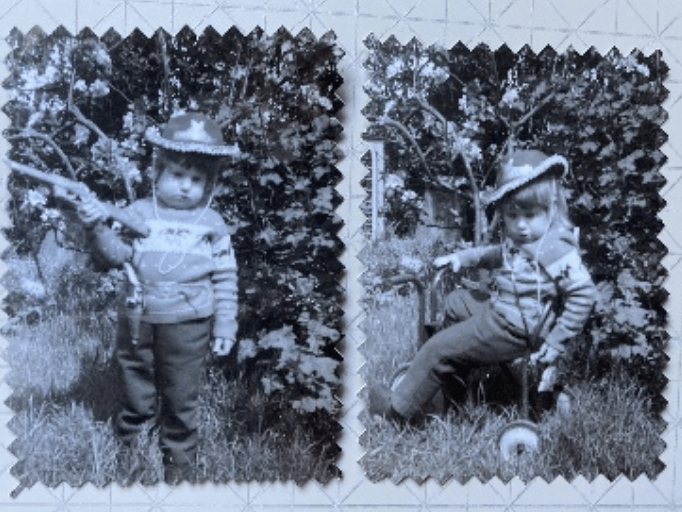
Dr Debra Carr is the Defence and Security Accelerator’s (DASA) Innovation Partner in Scotland. She is a Chartered Engineer and a Fellow of both the Institute of Materials, Minerals and Mining and of the Chartered Society of Forensic Sciences. Debra is also a Churchill Fellow having been awarded her Fellowship in 2012 to investigate Forensic Textile Science. This resulted in the publication of the only textbook on this topic. On leaving tertiary education, Debra worked for the MOD on research and development projects for future military body armour and helmets. Debra left the MOD in 1999 and became an academic working in the UK and in New Zealand on a wide variety of topics. She has published over 175 conference and journal papers. In 2018, Debra rejoined the MOD and moved to Scotland to commence her current role.’
Tell us a bit about yourself, background, and your current role.
I’m from a RAF family; I was born in Wiltshire and we moved to North Wales when my Dad left the RAF and I was around 9-years old. My Mum’s family comes from North Wales. I was first-in-family to enter tertiary education. I was awarded a HND in Materials Technology and a BSc(Hons) in Materials Science from Sunderland Polytechnic. My PhD was from the University of Birmingham on the compression properties of carbon fibre reinforced polymers. I’ve had three careers (to date):
- With the Ministry of Defence (MOD) in the 1990s (Stores and Clothing Research and Development Establishment; SCRDE which became the Defence Clothing and Textiles Agency; DCTA) as a materials scientist working on body armour and helmet research and development projects.
- As an academic for 20-years i) Postdoctoral Fellow at Imperial College on the degradation of paintings on canvas with reference to The Turner Collection, ii) academic staff at the University of Otago (New Zealand) in Clothing and Textile Sciences and iii) academic staff at Cranfield University/the Defence Academy in the Impact and Armour Group. You can check out my career details and publication record at https://orcid.org/0000-0002-9476-2166.
- In 2018, I commenced my current role as The Defence and Security Accelerator’s (DASA) Innovation Partner in Scotland. DASA finds, funds and fast tracks innovative ideas benefiting HM Armed Forces and National Security. I am DASA’s point of contact for Scottish innovators. To date DASA has funded 119 projects in Scotland (approximately £21m); some Scottish projects are included in DASA’s Innovation Case Studies https://www.gov.uk/government/collections/innovation-case-studies.
Did you ever sit down and plan your career?

Yes, early on I wanted to be a cowboy.
From 7-years old to 18-years old I was going to be a vet. I didn’t get the A Level grades I needed. Sunderland Polytechnic offered me a position on a four-year HND/BSc(Hons) Materials Science programme. No planning since then.
Have you faced any challenges along the way?
I don’t like to think about challenges; I like to think about the opportunities I’ve had. As a devastated 18-year old, Sunderland offered me an opportunity for an alternative career. Birmingham offered me an opportunity for a PhD which cemented my interest in research and laboratory work. The MOD offered me an opportunity for a lifelong association with personal protective clothing. Imperial, Otago and Cranfield gave me a second career as an academic allowing me opportunities to work with painting conservators, active outdoor clothing, NZ sports teams, Māori weavers, forensic textile science, body armour, helmets and wound ballistics. DASA has provided a third career in innovation, business development and knowledge exchange.
What has been the driving force to get you where you are today?
Stubbornness primarily, I suspect. Not being scared to ask “Why do we do it that way?”. Wanting to do things correctly. Wanting to solve real-life problems. Openly sharing information and experiences. Caring about ‘my people’.
What do you think are the biggest challenges facing our industry/Sector today, and how do you see us overcoming them?
We need the right people in the right jobs. It’s so easy to say but it’s a very difficult issue. We need to encourage people to enter the workforce with the correct skills or to be able to gain those skills while working. To recruit the best people, we need to offer not only interesting opportunities but a competitive salary compared to other sectors. People need to be able to see opportunities and careers that they are interested in. We need to retain these people in Defence. We need to be better at explaining what our customers need which means we need to understand what our customers need. We need funding to ensure we can support the very best research in our universities and industrial sector. We need to encourage spin-out of academic research. We need to support businesses of all sizes and encourage technology transfer when applicable. We need to work collaboratively.
Are we seeing more job opportunities for women in the UK defence industry?
I honestly don’t know. Personally, I’ve never felt that a job I’ve applied for would be unattainable because I’m female. I’ve never been put off applying for a role because I’m me, if I honestly thought I could do the job. I’m passionate about encouraging people into Defence as I believe it offers an interesting and fulfilling career. Diversity of people brings diversity of ideas and Defence can only benefit. Having said that, people need to be confident that Defence welcomes them. All I can say is that I have always felt welcome in every organisation I’ve worked for.
Do role models help to encourage more women into defence?
I’ve never had a role model or a mentor. I’ve never thought “There’s a person doing a job that I aspire to or I want to be just like them.”. There have been a number of people throughout my career that I respect and I value their opinions. I’ve no doubt that for some people, having a role model drives ambition and provides them with confidence regarding employment in any sector.
What advice would you give to young women entering the Defence Industry?
For any young person or any person new to Defence, believe in yourself. Understand what you are good at and what you are not so good at – work on it. Don’t be scared to seek and take opportunities offered to you. Talk to seniors about their experiences and careers. The Defence Sector is incredibly broad encompassing Government, industrial and academic opportunities. Interesting and rewarding jobs/careers are out there but you need to be proactive. Learn to network. Learn to talk confidently with authority and background knowledge about your area of expertise. Be up to date with the latest advances in your discipline. Attend events and conferences; most organisations will provide continuing professional development (CPD) opportunities. Join your relevant Professional Body (most organisations will pay the subscriptions); work towards relevant qualifications such as becoming Chartered or becoming a Fellow. Take advantage of mentoring schemes as a mentor and a mentee. Talk to juniors, offer them opportunities – remember what it was like for you.
What is your next challenge and what are you hoping to achieve in the future?
Let’s see what opportunities appear 😉
My answers reflect my personal experience and opinions and are not the views of my employer.





Responses